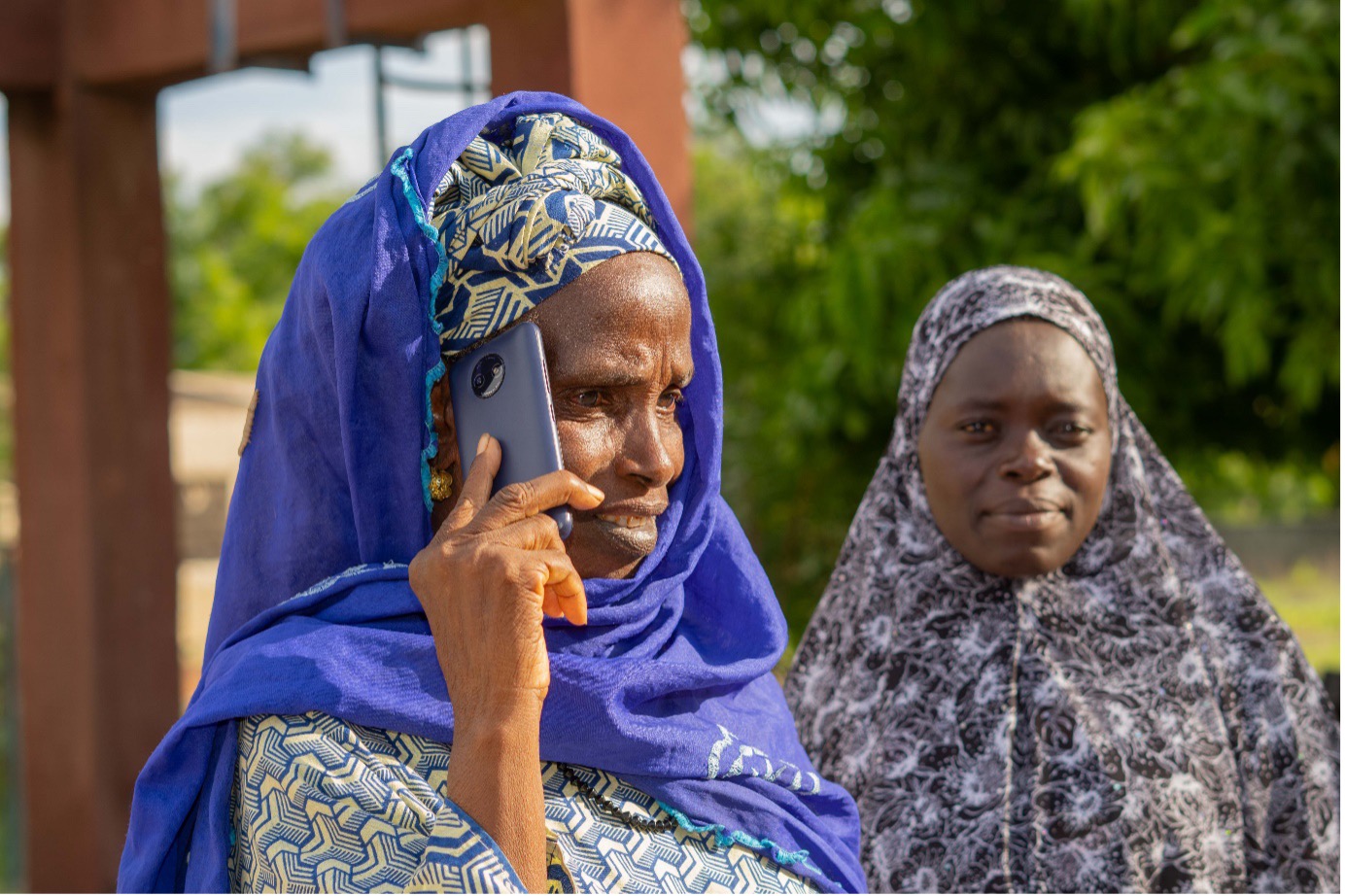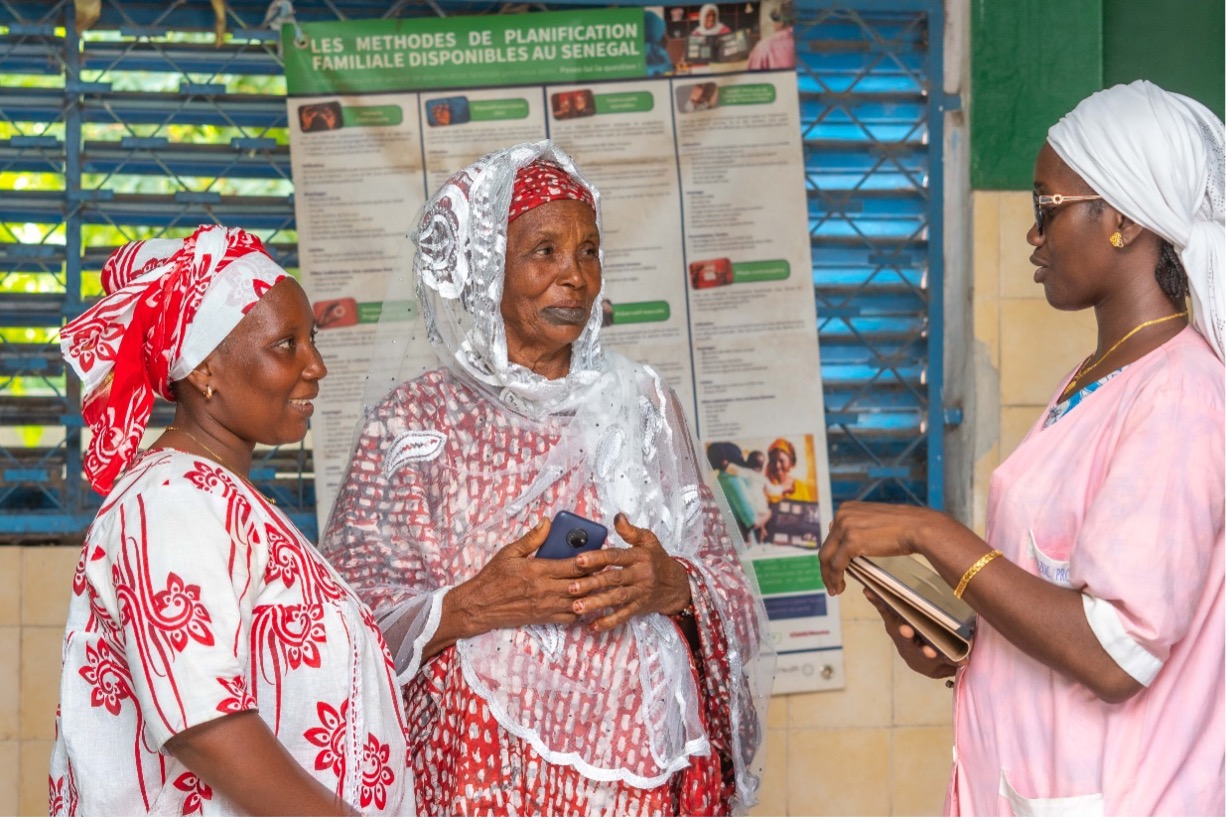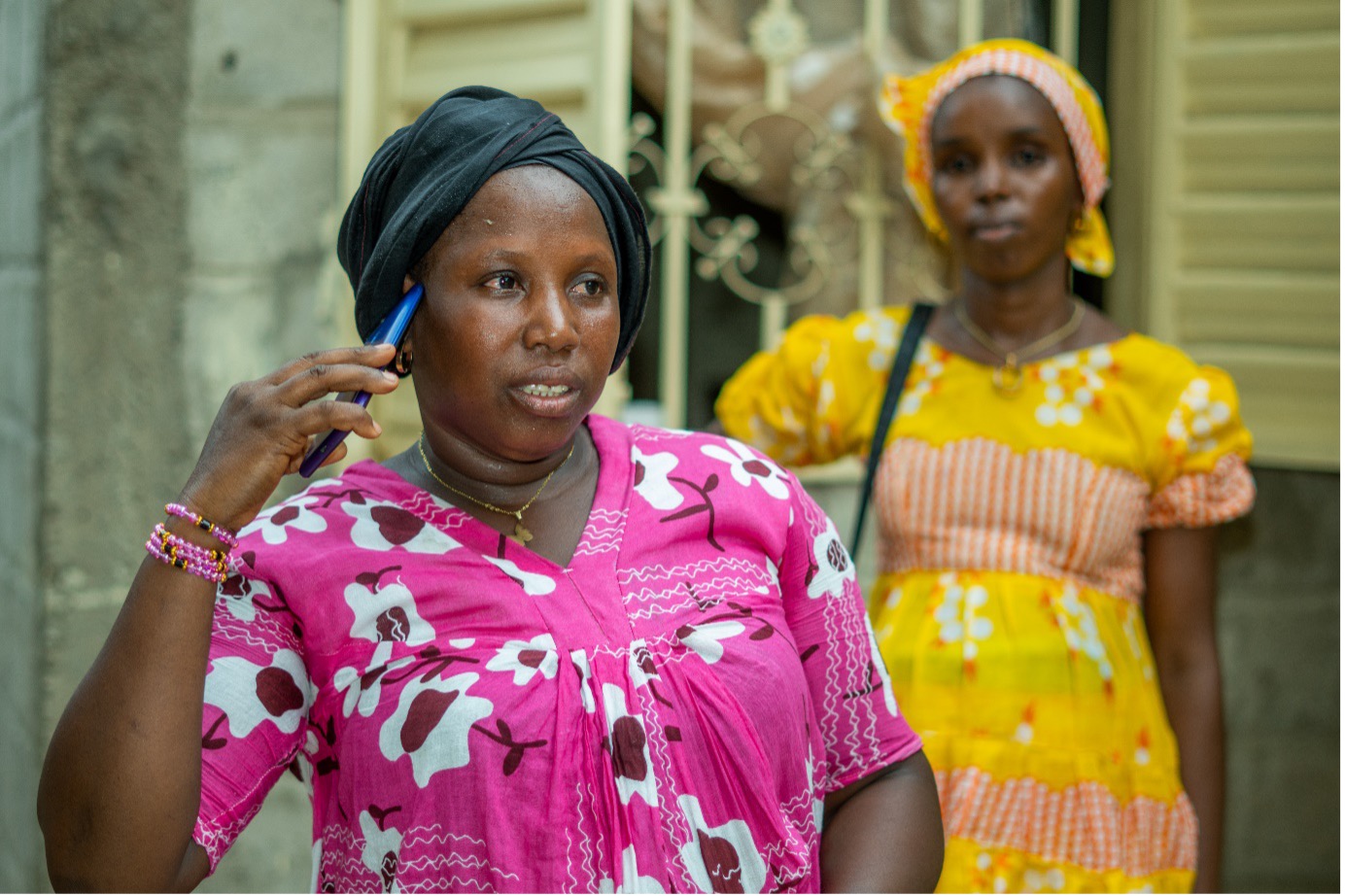As part of the DIRECCT program funded by the European Union, supported by OEACP and implemented by AFD, the NGO Oxfam has set up a digital health support project in Senegal. Its main objective is to improve access to healthcare and information for women living in regions far from urban centers.

Helping women gain access to healthcare
The COnnecter les VIllages Du Sénégal (CO VI D-Sénégal) project, implemented over the past two years in the Kolda and Tambacounda regions by Oxfam and its partners, the NGOs 7A and La Lumière, focused on an alliance between information and communication technologies and customary instruments to support the renewal of activities aimed at improving maternal, neonatal, infant and adolescent-youth reproductive health monitoring indicators (SRMNIA), which were negatively impacted by the COVID-19 epidemic.
“Faced with uncooperative husbands, we are sometimes obliged to advance patients the cost of transport to enable them to attend their appointments. We may also have to buy them the food supplements they are prescribed. In such cases, we try to make a home visit between prenatal consultations to talk to the husbands and take the time to make them aware of the importance of this prenatal check-up, which is a guarantee of good health for their wife and future child”. On the sidelines of a mission to monitor the project’s achievements in March, we heard this confession from one of the “bajenu gox” we work with in the Medina Yoro Foulah health district. The “bajenu gox”, a Wolof term that could be translated as neighborhood godmothers, are community relays who have been acting as intermediaries between health structures and the population since 2010. The initiative that set them up, supported at the time by President Abdoulaye Wade, aimed to use the figure of the “bajen”, the father’s sister, who traditionally plays the role of confidante and mediator in conflicts within the household. 8,600 volunteer women, recognized leaders in their neighborhoods, were enlisted by the program in Senegal’s 14 regions to take an active part in maternal health awareness-raising activities. The resistance we heard from this godmother confirms the results of an analysis that Oxfam in Senegal carried out last year as part of the development of its gender strategy. The study showed that gender perceptions, norms and stereotypes have a strong influence on household decision-making. Only 26.3% of women participate in decision-making about their own health. The decision to visit health facilities is most often under the control of the husband or, failing that, the mother-in-law. Given the evidence we had, we knew that technology alone could not provide a sustainable response to the challenges facing healthcare systems in our intervention areas.
Originally, we wanted to use an Interactive Voice Response (IVR) system to remind pregnant and breastfeeding women enrolled in the project’s indicator monitoring system about pre- and postnatal consultations. IVR is an automated telephone system that combines pre-recorded messages to engage callers by enabling them to provide and access information without a live agent. This technology has begun to have major applications in healthcare ranging from the management of chronic diseases such as diabetes to the care of specific patient populations such as the elderly or those with health literacy issues. In the context of our interventions, where socio-cultural barriers are still tenacious and “human” contact indispensable in many respects, it would have been poorly perceived, making it difficult for users to appropriate it. According to Babacar Faye, ICT4D Specialist for Oxfam in Senegal: “No matter how sophisticated the solution, it would not have offered pregnant and breastfeeding women benefiting from the CO VI D-Senegal project the personalized support they now receive from their neighborhood godmothers”.
Digital tools and resources designed to strengthen collaboration and communication between healthcare staff and community actors

Les mauvaises performances des indicateurs de santé maternelle ne sont pas liées uniquement à des facteurs culturels, anthropologiques ou socioéconomiques. Elles sont aussi le fait des défauts structurels et organisationnels de notre système de santé. C’est en effet la faible disponibilité en ressources humaines de qualité qui entretient la mauvaise qualité du suivi de la santé maternelle et infantile. Très peu de régions disposent de gynécologue-obstétriciens ou de pédiatres ; les sage-femmes sont en quantité insuffisante ainsi que les structures délivrant des soins obstétricaux et néonataux d’urgence de base. « En cela, il faut dire que l’intégration des « bajenu gox » dans la mise en œuvre des activités de santé communautaire est une solution innovante qui fait montre d’une réflexion stratégique menée dans une approche inclusive » rappelle Malick Ndome, chargé du projet CO VI D-Sénégal. Le gouvernement du Sénégal accorde d’ailleurs aux « bajenu gox » le mérite d’avoir contribué à réduire le nombre de décès maternels de 410 à 315 pour 100 000 naissances vivantes entre 2008 et 2015 et le nombre de décès infantiles de 59 à 50 pour 1 000 naissances vivantes au cours de la même période.
The poor performance of maternal health indicators is not only linked to cultural, anthropological or socio-economic factors. They are also due to the structural and organizational deficiencies of our healthcare system. In fact, it is the low availability of quality human resources that maintains the poor quality of maternal and child health monitoring. Very few regions have gynecologists-obstetricians or pediatricians; midwives are in short supply, as are facilities providing basic emergency obstetric and neonatal care. “In this respect, the integration of “bajenu gox” into the implementation of community health activities is an innovative solution that demonstrates strategic thinking in an inclusive approach,” points out Malick Ndome, head of the CO VI D-Senegal project. The Senegalese government credits the “bajenu gox” with helping to reduce the number of maternal deaths from 410 to 315 per 100,000 live births between 2008 and 2015, and the number of infant deaths from 59 to 50 per 1,000 live births over the same period.
Empowering neighborhood godmothers to sustain the achievements of the CO VI D project – Senegal

Even if the “bajenu gox” have been successful in their communities and have managed to have a real impact on maternal and infant mortality at national level, they are gradually turning away from their mission due to the lack of remuneration and the constant demand for their services, which prevents them from undertaking a parallel economic activity. In implementing this project, we felt it was important to promote the leadership of these women to ensure that our achievements would be sustained. In addition to the training they received in communication and information systems, the 133 godmothers were formed into “Saving for Change” (EPC) groups, a microfinance mechanism deployed by Oxfam in Senegal since 2006 to strengthen women’s economic and financial empowerment, based on the tontine model, a collective, rotating savings system where everyone contributes and receives the amount collected in turn. This enables traditionally marginalized groups such as women to overcome the difficulties of accessing bank loans, whose interest rates are extremely dissuasive. The inclusion of the EPC groups formed by the “bajenu gox” in the mapping of small economic units supported by Oxfam and its partners will enable them to benefit from a package of organizational strengthening activities that will ultimately help them to set up income-generating activities.
